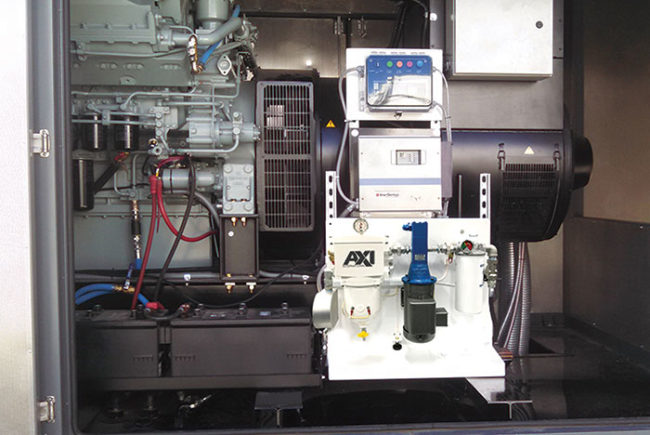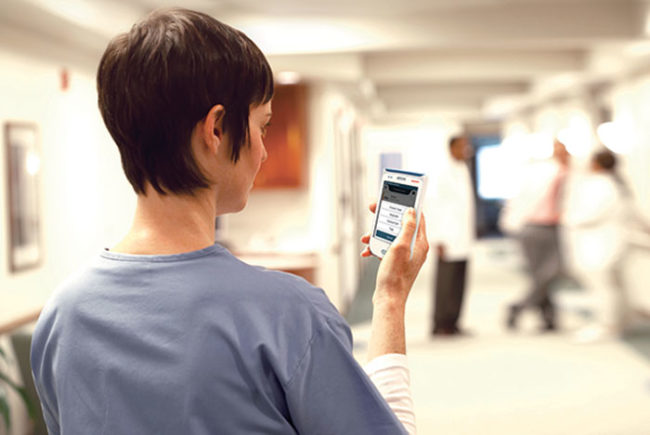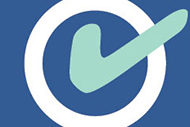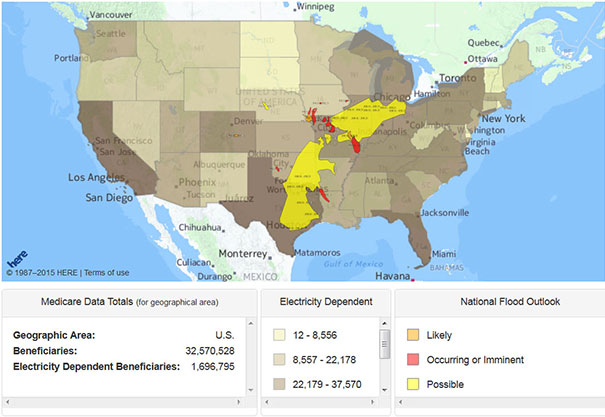 |
|
Graphic courtesy of HHS emPOWER Map combines Medicare patient data (seen here in shades of brown) and weather tracking services to help health agencies prepare for weather disasters. |
Health & Human Services (HHS) recently launched an interactive online tool to help community health agencies and emergency management officials with disaster preparedness for persons who use electrically-powered medical equipment at home.
"For people who rely on electricity-dependent medical equipment, prolonged power outages can mean life or death,"explains Nicole Lurie, M.D., assistant secretary for preparedness and response, HHS.
"This tool helps communities better anticipate, plan for and respond to these unique needs of this population and improve resilience for the entire community before and after disasters," she says.
More than 1.6 million Medicare fee-for-service beneficiaries nationwide rely on electricity-dependent medical and assistive equipment, such as a ventilator, internal feeding, IV infusion pump, suction pump, at-home dialysis, electric wheelchair, electric bed equipment and oxygen concentrator equipment.
The centerpiece of the online resource is the HHS emPOWER Map, which shows the monthly total number of Medicare fee-for-service beneficiary claims for electricity-dependent equipment at the national, state, territory, county and ZIP code levels. Access the map at www.phe.gov/empowermap/.
As would be expected the map shows that the most populous states and those that are popular choices for retirement have the most Medicare patients and, therefore, have the most individuals using electrically-powered medical equipment at home.
For example, California has nearly 5 million Medicare beneficiaries and, of those, an estimated 173,000 use electricity-dependent medical equipment. Florida has about 3.7 million Medicare beneficiaries, of whom 160,000 are electricity-dependent. Texas has about 3.3 million Medicare beneficiaries and 153,000 who are electricity-dependent.
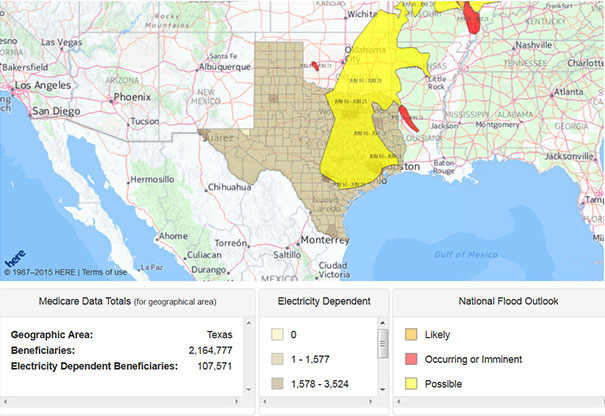 |
|
Graphic courtesy of HHS This close-up of Texas, showing a possible flood warning, is an example of the type of information local health officials can access on the HHS emPOWER Map. |
Besides the Medicare data, the online tool also incorporates real-time severe weather tracking services from the National Oceanic and Atmospheric Administration in a geographic information system.
The emPOWER Map can help community organizations, including hospitals, first responders and electric utility officials, work with health officials to prevent negative health impacts on vulnerable persons during prolonged power outages due to storms and other disasters.
For example, the HHS emPOWER Map could be used by electric utility companies to determine priority areas for restoring electrical service based on the location of the largest concentration of electricity-dependent individuals. This could assist hospitals, health care coalitions and emergency medical services in planning better for surges in medical services.
Emergency planners also could use the tool to anticipate whether emergency shelters might experience greater electricity demand due to higher concentrations of electricity-dependent Medicare beneficiaries nearby.
Local officials could estimate more accurate assistance needs for transportation and evacuation when local mass transit systems are affected by prolonged power outages after disasters.
"With the rise in home-based care, real-time awareness of population-level needs, and the ability to respond to them, is critical," Lurie notes. "Better planning helps communities respond better and recover faster, and that's where our emPOWER Map can provide the greatest benefit."
While the information in the HHS emPOWER Map protects patient privacy, in an emergency, additional information can be made available to a health department to facilitate emergency response, consistent with the Health Insurance Portability and Accountability Act Privacy Rule.
The emPOWER Map was developed collaboratively by the HHS Office of the Assistant Secretary for Preparedness and Response and the Centers for Medicare & Medicaid Services.



